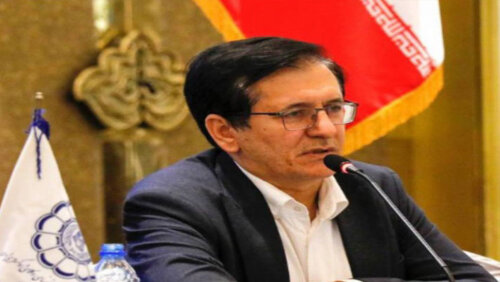Best Trusts Lawyers in Shiraz
Share your needs with us, get contacted by law firms.
Free. Takes 2 min.
List of the best lawyers in Shiraz, Iran
About Trusts Law in Shiraz, Iran
The concept of trusts in Iran is influenced by both Islamic law and civil law principles. Trusts, or "Vakf," are primarily rooted in Islamic endowments utilized for charitable, religious, or educational purposes. In the context of Shiraz, a city known for its rich cultural and historical heritage, the establishment of trusts may also extend to family and business arrangements under certain conditions. However, the legal framework governing trusts in Iran is not as developed as in common law jurisdictions, requiring careful navigation of applicable local laws and religious interpretations.
Why You May Need a Lawyer
Engaging legal expertise is crucial when dealing with trusts in Shiraz for several reasons:
- Establishing a legitimate trust according to Islamic and civil legal practices.
- Navigating complex family or business arrangements that involve property or financial management.
- Resolving disputes between beneficiaries or issues relating to the administration of a trust.
- Ensuring compliance with local legal requirements and maximizing the benefits of the trust.
- Exploring charitable trust options to support community or religious initiatives effectively.
Local Laws Overview
The legal landscape for trusts in Shiraz, and Iran more broadly, comprises several key aspects:
- The formation and administration of trusts are subject to Islamic jurisprudential rules, which govern how assets can be managed and held in trust.
- Trusts for charitable purposes, often known as Vakfs, must adhere to specific guidelines and may require government approval or oversight.
- Trust deeds must be carefully drafted to meet legal standards and ensure proper execution according to Iran's legal principles.
- There are limitations on the types of property that can be included in a trust, largely dictated by religious law.
Frequently Asked Questions
What is a Vakf, and how does it differ from a Western-style trust?
A Vakf is an Islamic endowment of property to be used for religious or charitable purposes. Unlike Western-style trusts, Vakfs may also involve specific religious obligations and restrictions.
Can non-Muslims establish a trust in Shiraz?
While non-Muslims are allowed to establish certain types of trusts, it is essential to observe and comply with local laws, including Islamic regulations, which may affect the structure and function of the trust.
Is it possible to create a family trust in Shiraz?
Yes, but it requires navigating both civil and Islamic legal frameworks to ensure the trust's validity and operational effectiveness, often necessitating legal assistance.
What are the tax implications of establishing a trust in Shiraz?
The tax implications can vary significantly based on the nature of the trust and its activities. Legal counsel is typically required to assess potential tax liabilities and benefits.
What role does the government play in the administration of a trust?
The Iranian government may have oversight responsibilities, particularly concerning charitable trusts, to ensure compliance with legal standards and intended purposes.
How can disputes concerning a trust be resolved?
Disputes are generally resolved through negotiation, mediation, or, if necessary, legal proceedings, with legal advisers playing a crucial role in facilitating resolution.
What documentation is required to establish a trust?
Key documents include a comprehensive trust deed, relevant property titles, and any necessary governmental approvals or consents, particularly for charitable trusts.
Are there limitations on the type of property that can be placed in a trust?
Yes, there are limitations, heavily influenced by Islamic law. Certain types of property, especially those subject to religious obligations, may not be eligible.
How are beneficiaries determined in an Iranian trust?
Beneficiaries must be explicitly named within the trust deed, and their rights and obligations are typically governed by both the deed and applicable legal principles.
What is the process for dissolving a trust?
Dissolving a trust requires compliance with its founding documents and applicable legal standards, often involving complex legal processes.
Additional Resources
- Local Legal Aid Clinics: Can provide primary assistance and referrals.
- Shiraz Notary Public Offices: For document notarization and legal advice.
- The Ministry of Justice: For oversight and guidance on legal compliance.
- Bar Associations: Offering directories of specialized trust lawyers.
Next Steps
If you are considering establishing or managing a trust in Shiraz, it is advisable to consult with a legal professional who specializes in trust law in Iran. Start by gathering essential documents and information about the assets involved. Reach out to local legal aid organizations, or contact a well-reviewed attorney familiar with both civil and Islamic trust regulations. Ensuring that you have the proper guidance will help safeguard your interests and those of the beneficiaries involved.
Lawzana helps you find the best lawyers and law firms in Shiraz through a curated and pre-screened list of qualified legal professionals. Our platform offers rankings and detailed profiles of attorneys and law firms, allowing you to compare based on practice areas, including Trusts, experience, and client feedback.
Each profile includes a description of the firm's areas of practice, client reviews, team members and partners, year of establishment, spoken languages, office locations, contact information, social media presence, and any published articles or resources. Most firms on our platform speak English and are experienced in both local and international legal matters.
Get a quote from top-rated law firms in Shiraz, Iran — quickly, securely, and without unnecessary hassle.
Disclaimer:
The information provided on this page is for general informational purposes only and does not constitute legal advice. While we strive to ensure the accuracy and relevance of the content, legal information may change over time, and interpretations of the law can vary. You should always consult with a qualified legal professional for advice specific to your situation.
We disclaim all liability for actions taken or not taken based on the content of this page. If you believe any information is incorrect or outdated, please contact us, and we will review and update it where appropriate.








